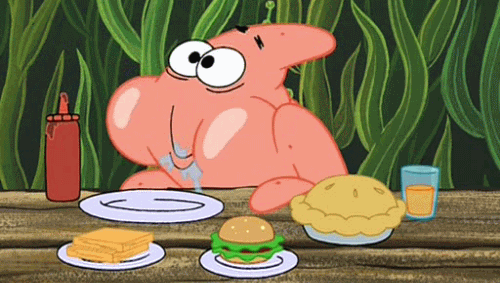Ingestion:
- When food enters your mouth its called ingesting food.
- Chewing food is called Mastication.
- Swallow food.
- The teeth that you chew food with is called a molar.
- The teeth that you rip and tear food with is called canines.
- The teeth that you cut food with is called the incisors.
- Our Salivary glands add saliva to the food to help lubricate it.


- The food is "pushed" down the esophagus to the stomach by waves of muscle contractions. Circular muscles contract behind the bolus pushing it downwards. Longitudinal muscles contract, widening and the diameter and shortening the length of the tube. This process is called peristalsis.


Digestion:
Stomach:
The esophagus leads to the stomach.
The stomach can hold 2-4 litres of fluid.
It holds acid which digests food.
The stomach is a large elastic bag that can expand to hold many litres of food.
The PH of the acid is 1-2
The interior of the stomach is lined with holes called gastric pits.

Small Intestine:
Stomach:
The esophagus leads to the stomach.
The stomach can hold 2-4 litres of fluid.
It holds acid which digests food.
The stomach is a large elastic bag that can expand to hold many litres of food.
The PH of the acid is 1-2
The interior of the stomach is lined with holes called gastric pits.

Small Intestine:
The small intestine lies between the stomach and the large intestine.
The PH is between 7-9.
Absorption of nutrients takes place in the small intestine.
The inner walls are covered in small, finger-like projections called villi.
The projections increase the surface area of the small intestine, which increases the rate of absorption.

https://www.vectorstock.com/royalty-free-vector/cartoon-of-large-and-small-intestine-vector-7523894
Large Intestine:
Reabsorption of ions and water is a vital function of the large intestine.
The inner surfaces do not contain villi.
Liver:
The liver is the second largest organ in the human body.
A green coloured fluid called bile is produced in the liver.
Average mass of the human liver is about 1.5kg.
The liver detoxifies chemicals and metabolizes drugs.
The liver makes proteins important for blood plasma and other functions.

https://makeagif.com/gif/what-is-cirrhosis-of-the-liver-3d-medicalshow-animation-LkSGJJ
Absorption:
Egestion:
No comments:
Post a Comment
Note: only a member of this blog may post a comment.